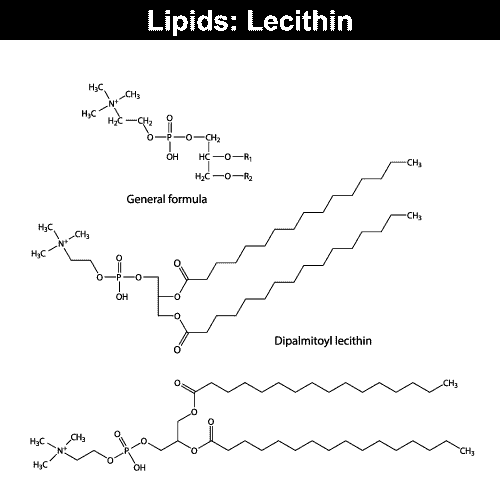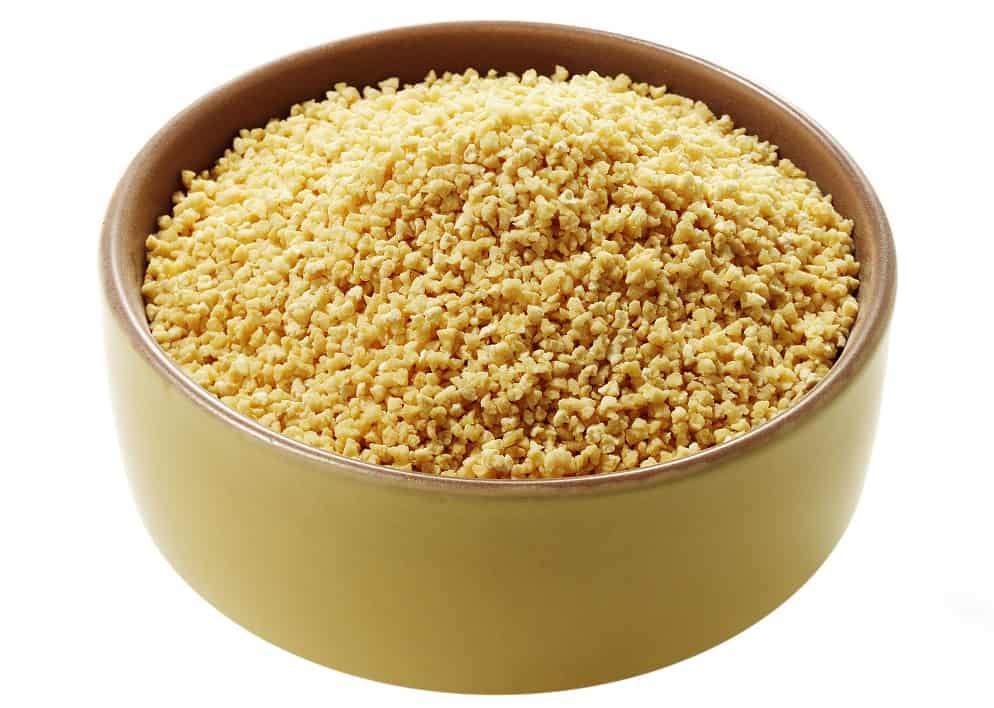Lecithin is a common ingredient that people tend to overlook in the products they buy because of its general usage. As a food additive, lecithin primarily acts as an emulsifier that prevents the dissociation of polar and non-polar ingredients such as water and oil. There are many types of lecithin being used in the food industry and soy lecithin is among the most common type.
In a word, soy lecithin is vegan. While lecithin is a rather controversial ingredient in the vegan community, soy lecithin takes away the uncertainty as its source is simply soybean. As a food additive, soy lecithin is often used in minimal quantities that prove unlikely to be of any harm to the body although some mild side effects have been reported.
Table of Contents
What is Soy Lecithin?
Lecithin is a naturally occurring mixture of phosphatides of choline, ethanolamine, inositol, and other lipids. It is a widely used ingredient in various industries for the production of food, animal feed, pharmaceuticals, paints, and other industrial applications where emulsification is required.

In food, lecithin is primarily used as an emulsifier where ingredients of different polarities (i.e., water and oil) remain mixed. The lack of an emulsifying agent will result in the separation of these ingredients.
First isolated in 1845, lecithin is an important substance since it is the first ever phospholipid to be identified and characterized. Isolated by French pharmacist and botanist Theodore Gobley, the term lecithin comes from the ancient Greek word ‘lekithos’ which translates to ‘egg yolk’ since the compound was first isolated from egg yolk (1).
Easily extracted using different kinds of solvents (e.g., hexane, ethanol, acetone, etc.), commercially produced lecithin is typically extracted from several different sources such as egg yolk, flax, cottonseed, corn germ, sunflower seed, and grapeseed. However, to keep up with the rising global demand for lecithin, companies have since used soybeans for their chemical composition.
Technically, soy lecithin is approximately composed of 33-35% soybean oil, 20-21% phosphatidylinositols, 19-21% phosphatidylcholine, 8-20% phosphatidylethanolamine, 5-11% other phosphatides, 5% free carbohydrates, 2-5% sterols, and 1% moisture (2).
The general process of extracting lecithin from soy is relatively straightforward. First, soybean oil is extracted from the soybeans through the use of a chemical solvent. The resulting soybean oil is then mixed with water to isolate the polar lecithin from the non-polar oil. The water portion containing the lecithin is then separated and dried to produce lecithin.
From 1994-2010, lecithin production reached an average of 98,000 tons annually. In 2018, the global soy lecithin market was valued at $1,500 million with a rate of growth that is estimated to reach $1,770 million by 2025.
Is Soy Lecithin Vegan?

Even though lecithin can be mostly made from plant sources, the substance can still be made from animal-derived sources such as its original source, egg yolk. However, soy lecithin – which is solely derived from soy (Glycinia max) – is a vegan ingredient.
Is Lecithin Safe?
Even though soy lecithin is, for all intents and purposes, vegan, many vegans are still cautious about soy lecithin because of its role as a food additive.
While soy lecithin is derived from soybeans, and cases of allergic hypersensitivity towards soy have been reported, the FDA still declares soy lecithin to be generally regarded as safe (GRAS) (3).
Furthermore, cases of allergic responses caused by soy lecithin have been rare since most allergens present in soy have already been removed during the process of isolating lecithin.
In fact, soy lecithin is not only safe to consume but it is even being used in health supplements as well as being investigated by scientific studies for several health benefits.
Previous studies suggest that lecithin supplementation can help reduce low-density cholesterol (LDL; “bad cholesterol”) without reducing high-density cholesterol (HDL; “good cholesterol”). When lecithin supplementation was given to patients with high cholesterol, a significant 42.05% reduction in LDL was observed after only one month of lecithin supplementation (4).
Soy lecithin has even been observed to have a positive effect on both mental health and cognitive function. A 2014 paper published in the Advances in Therapy found that soy lecithin-derived phosphatidylserine and phosphatidic acid had a positive influence on memory, mood, and cognitive function among elderly subjects (5).
Other Concerns
Despite its popularity among the vegan community, there are those who avoid soy and soy-based products. For one, soy is among the eight major allergenic food (i.e., including milk, eggs, fish, crustacean shellfish, tree nuts, peanuts, and wheat). The eight major allergenic food is estimated account for 90% of all food allergies in the US.
Another rising concern against soy is its impact on the environment. Firstly, the majority of the soy being planted in agriculture today are genetically modified organisms (GMOs). First introduced back in 1996 by Monsanto, GMO plantations are suggested to be harmful to the environment. This is especially troubling when biodiverse forested land is cleared to plant hundreds of hectares of a monocultural clone.
Ever since their development, there has been camps against GMO products. A common argument against GMO products is that they have not been subjected to enough long term studies to ascertain their safety for human consumption.
Secondly, soy is said to be second to beef in terms of driving global deforestation. While soy is used for human consumption, the estimated amount of soy being planted for food in the US is only about 15%. The remaining amount is for the production of animal feeds. However, this speaks more to the detrimental effect of livestock agriculture on the environment.
References
1. https://aocs.onlinelibrary.wiley.com/
2. https://aocs.onlinelibrary.wiley.com/




